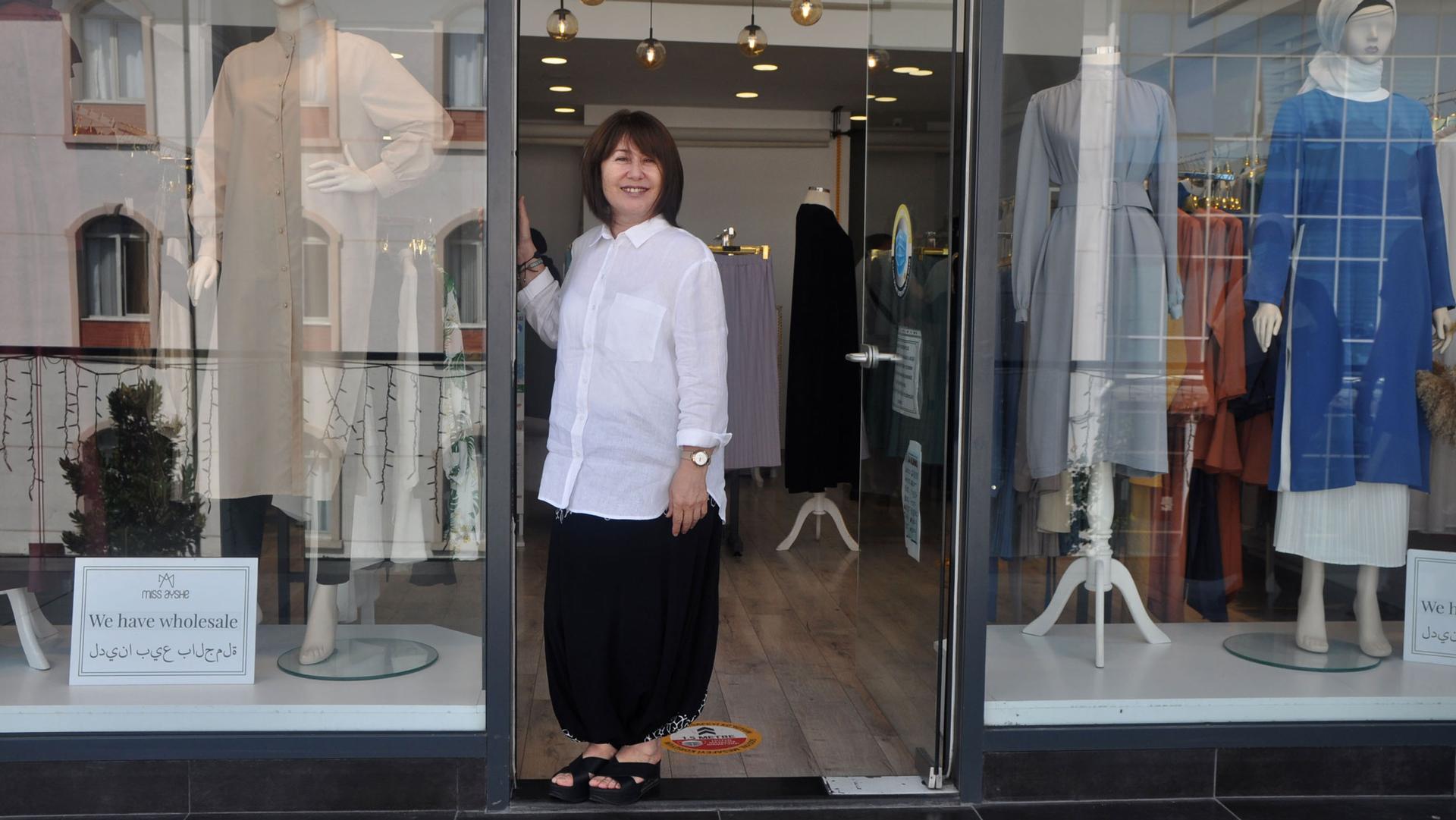As fashion designer Ayşe Yıldırım bustles around her shop in Istanbul, she slides past bold, colorful tops; long, shimmery party dresses and a sleek white pantsuit. Each design features collars that fully cover the chest, sleeves that graze the wrist and breathable materials that are comfortable to wear — even in the heat.
It’s a range of styles with a particular consumer in mind: women who dress modestly, often for religious reasons. Yıldırım points to a black-and-white tunic from the racks that is popular with her customers. She said this design has sold consistently for three seasons.
Related: Iconic ‘Ghana Must Go’ bag gets refashioned
Turkey is quickly becoming a global center of modest fashion — a retail sector defined by looser and longer cuts. Its popularity is driven by a growing appetite for high-end clothes in predominantly Muslim countries, where women who wear the hijab, or headscarf, usually seek out clothing that offers more coverage than mainstream brands tend to offer.
Related: Fashion designers worry over Brexit’s cost to UK industry
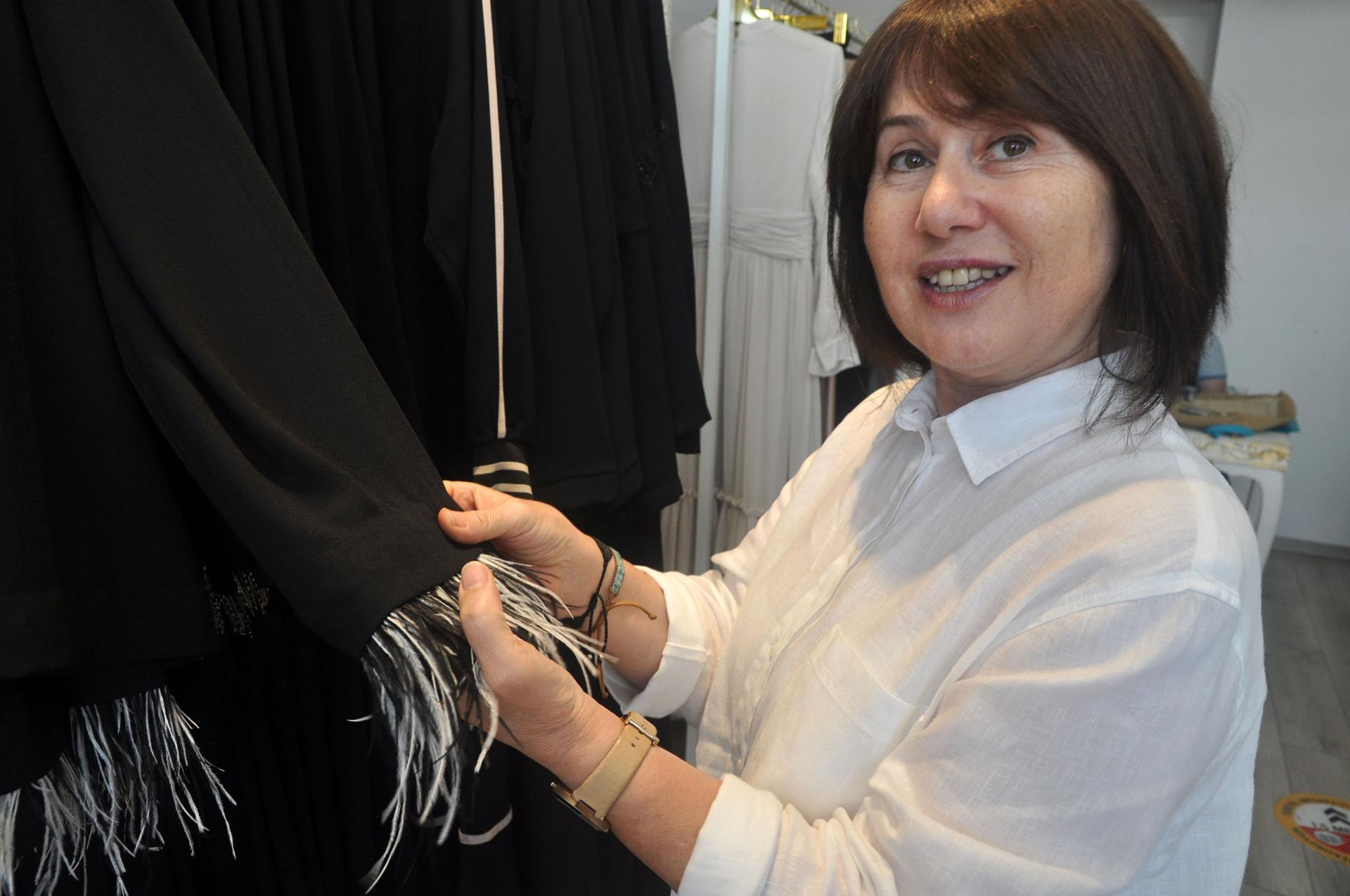
According to revenue projections by Salaam Gateway, an analytics company focusing on Muslim consumers, Muslims globally spent $277 billion on clothes and shoes in 2019. The sector is expected to grow to $311 billion by 2024. Though, this may be tempered by the COVID-19 pandemic, which hit retailers particularly hard.
To tap into this market, Yildirim said, major brands and luxury stores are starting to copy modest brands like hers. But they don’t always hit the mark. One high-end Turkish brand has started to market long scarves that can be worn as a hijab, but are advertised as a scarf to tie around a handbag.
“They want to make money by marketing to Muslim women, but they don’t want to acknowledge they’re doing this. … It’s such a contradiction.”
“They want to make money by marketing to Muslim women, but they don’t want to acknowledge they’re doing this,” Yıldırım said. “It’s such a contradiction.”
Related: Massachusetts gets first hair salon exclusively for hijabis
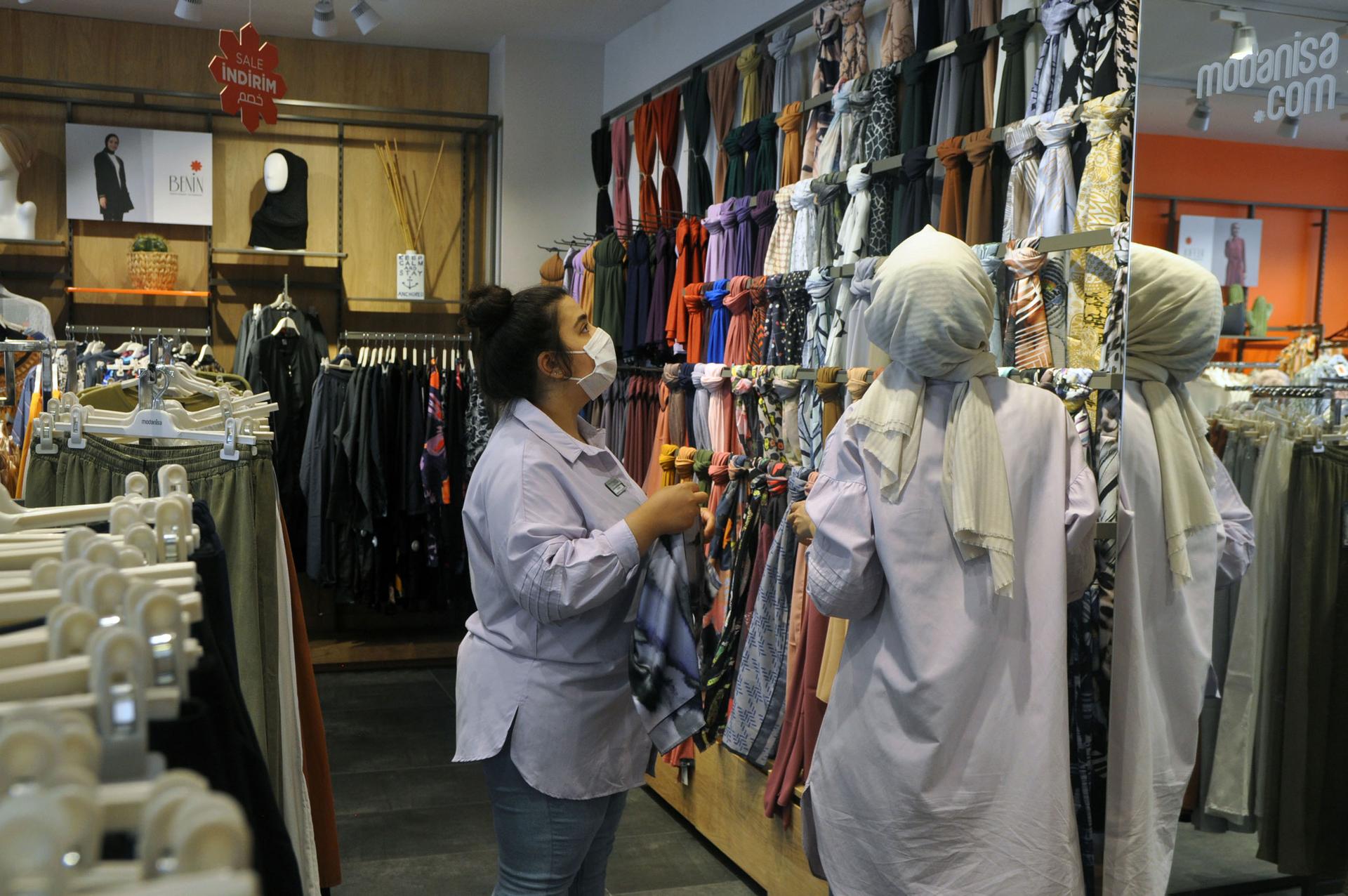
Instead, Yıldırım said, brands need to understand what modest shoppers are looking for when they walk into a store. Classic, versatile designs. Good fabrics. Something that makes the consumer feel beautiful.
Yıldırım started her brand, Miss Ayşe, over a decade ago — when the retail industry catering to religious women was still limited.
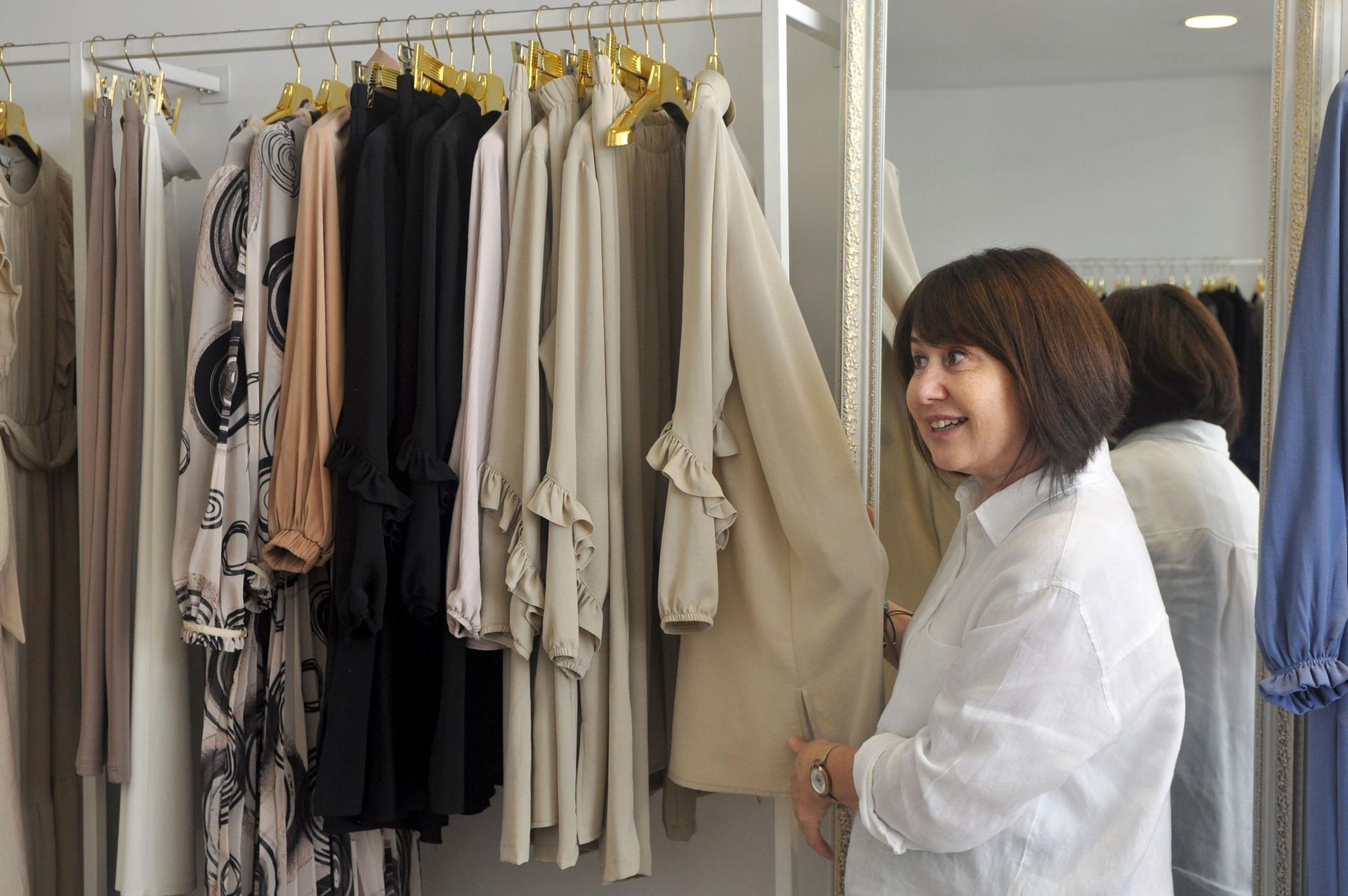
Today, her store sits in an entire mall devoted to modest shoppers. There’s Manuka, a whimsical brand of patterned fabrics and pastel colors for young women. And Manila, a sportswear company that sells a swimwear hijab.
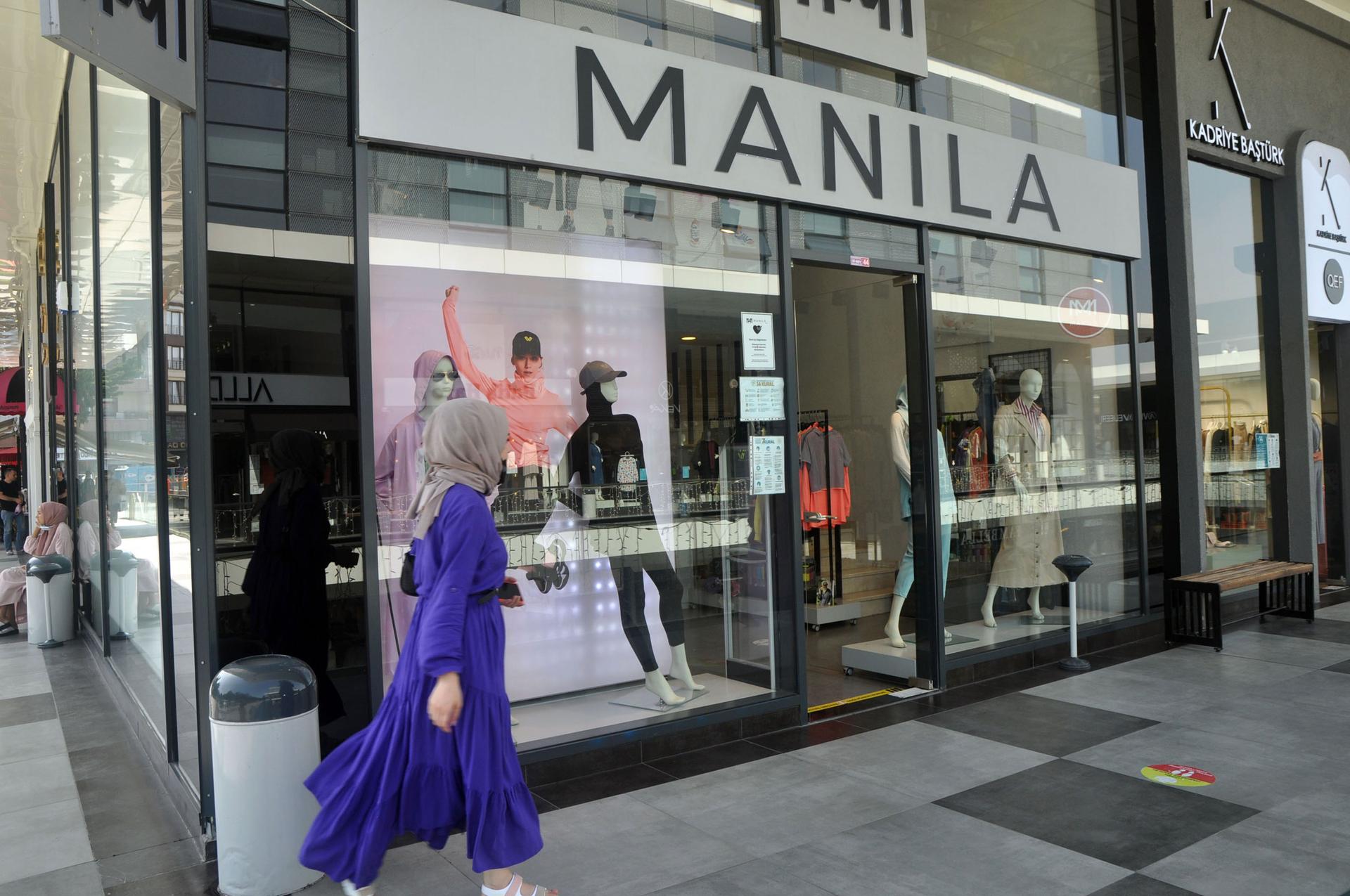
Hiba Balbey said it’s a far cry from her days as a teenager when shopping for clothes was the worst.
“When I was little, it was torture!” she said. “You needed to look really, really closely to find something.”
Tops and skirts from mainstream brands were always too short, too tight or too transparent. In the mid-2000s, during the era of low-rise jeans and plunging necklines, following these trends while dressing modestly felt like an exercise in futility.
Related: Zelda Hair wig shop in Brooklyn challenges Orthodox Jewish traditions
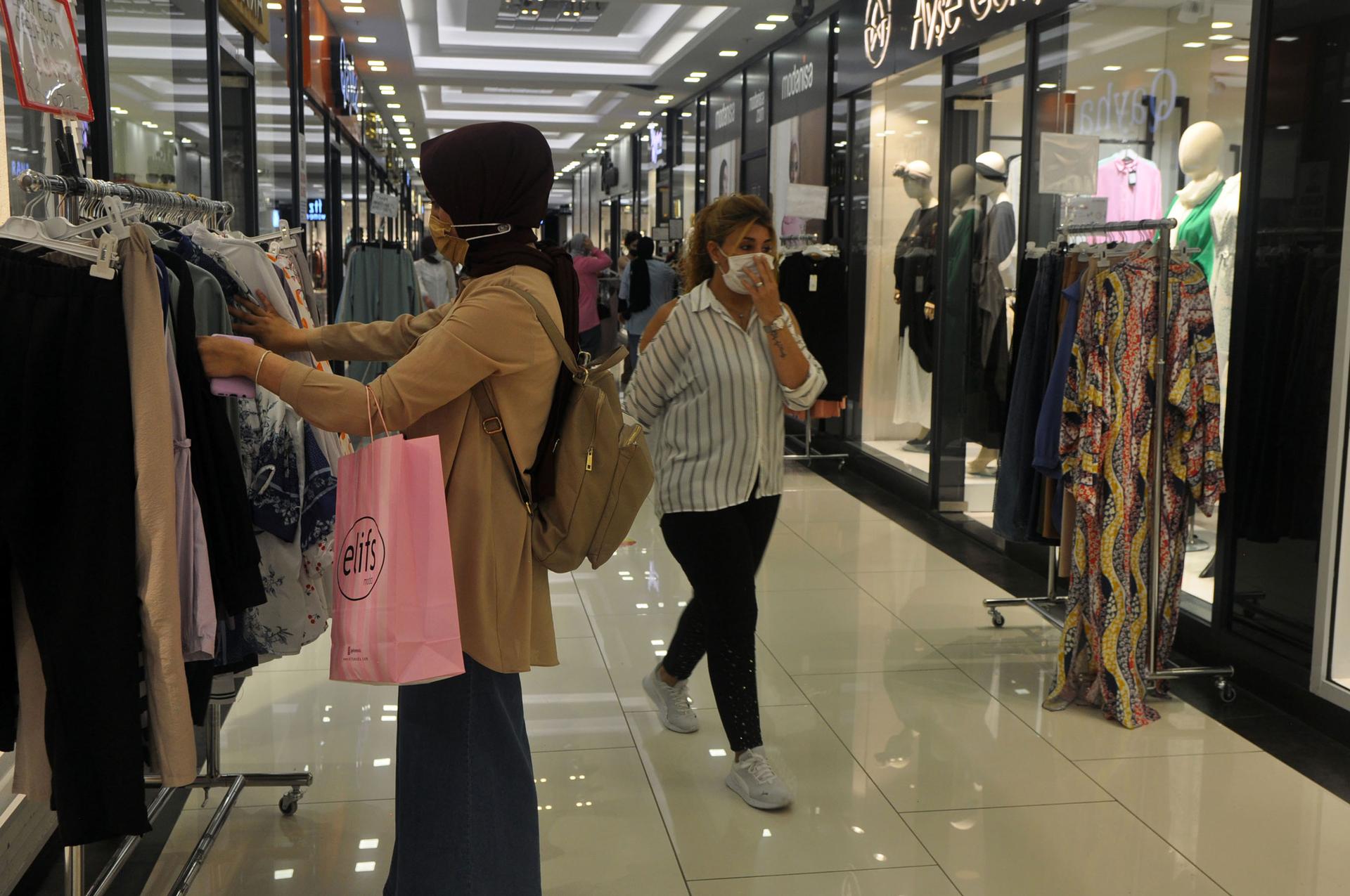
“At first, when I started wearing hijab, it was something really bad — like I’d wear a crop top and underneath, tights, and then jeans,” Balbey said. “It was always about that one look, you know?”
Today, Balbey lives in Istanbul with her husband and 2-year-old daughter. She just finished a Master’s degree in communication design. Over the years, the stress of shopping has melted into something much better: the joy of getting dressed.
“…You can express yourself, you can be yourself, you can be on trend — at the same time keeping your identity — the hijab identity.”
“It was like a dress code. And then it became so much more. You can express yourself, you can be yourself, you can be on trend — at the same time keeping your identity — the hijab identity.”
Now, Balbey said, she has options with a plethora of online retailers she can trust. New products can be worn under a looser dress to cover the wrists or neck, to help an outfit transition into a modest look without bulky layers.
“For us, as hijabis, it’s the only thing showing to the world, you know?” Balbey said. “It needs to be really elegant.”
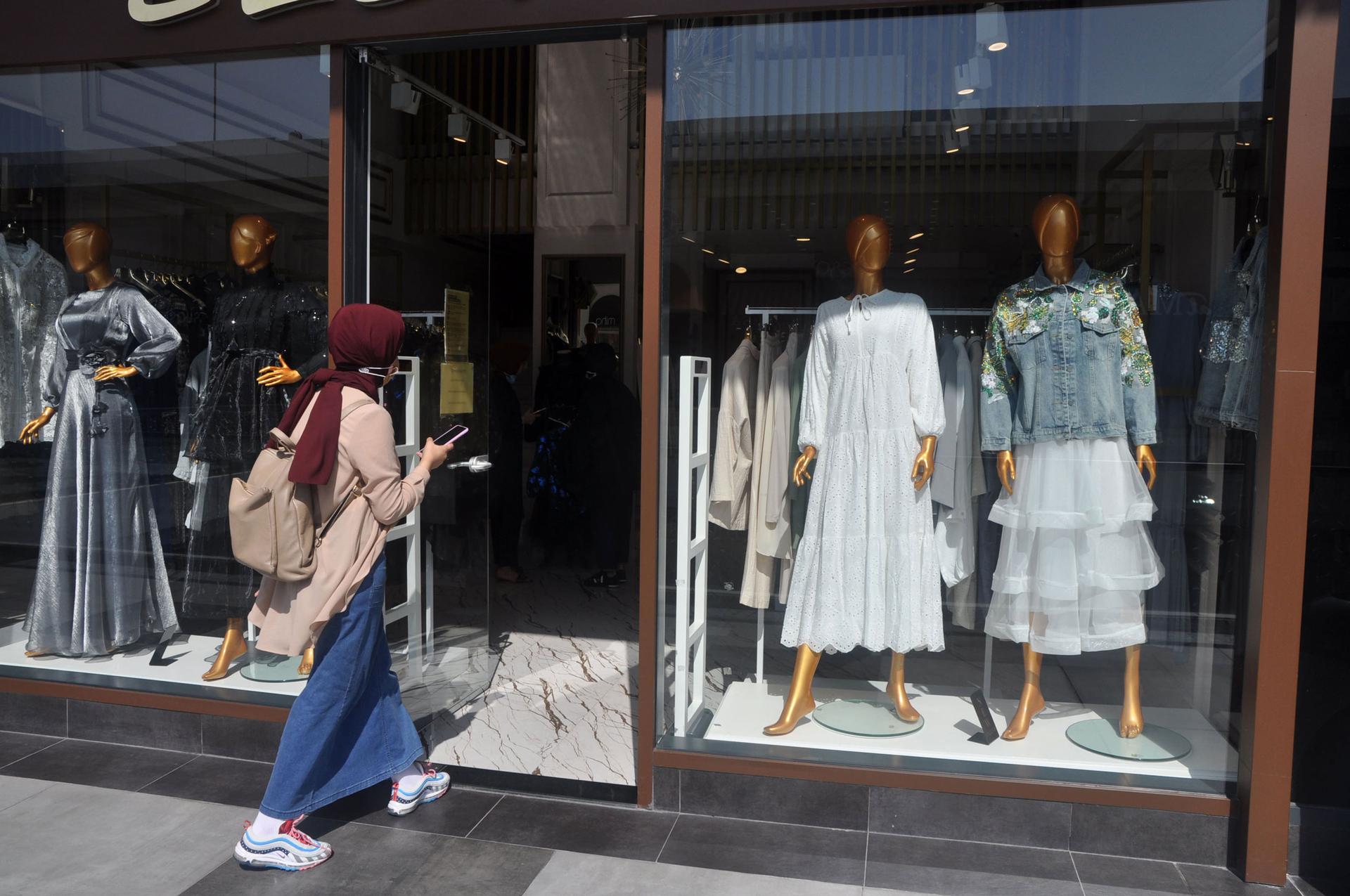
Balbey’s Instagram account is full of photos of herself wearing brightly colored flowing fabrics — fuchsia for the beach, a blue chiffon dress for an afternoon out, a mint green jacket in a coffee shop. Her favorite piece, a long, sleek robe known as an abaya, can be styled for a casual day, over jeans or as formalwear.
“Their fabric quality is like — wow,” Balbey said. “You feel like a queen.”
In 2016, Turkey-based ThinkFashion held a Modest Fashion Week in Istanbul, sponsored by Modanisa, an online modest shopping giant. The group has since organized modest fashion weeks in London, Dubai and Jakarta; and is planning its first post-pandemic event in November.
“The buying power was already there for a long time. But the missing thing was having a different style and different type of approach.”
“The buying power was already there for a long time. But the missing thing was having a different style and different type of approach,” said Özlem Sahin, co-founder of ThinkFashion.
Though some Turkish brands have made modest clothing for more than 30 years, Sahin said the market really picked up in the last decade.
Today, modest styles can easily be found at mainstream brands, such as H&M or Mango, a sign to Sahin that modest fashion has reached the mainstream. She sees regional trends, where women in Gulf countries prefer luxury abayas, and Americans or Canadians prefer relaxed-cut pants. Small, local brands are driving the market — many with a healthy social media following.
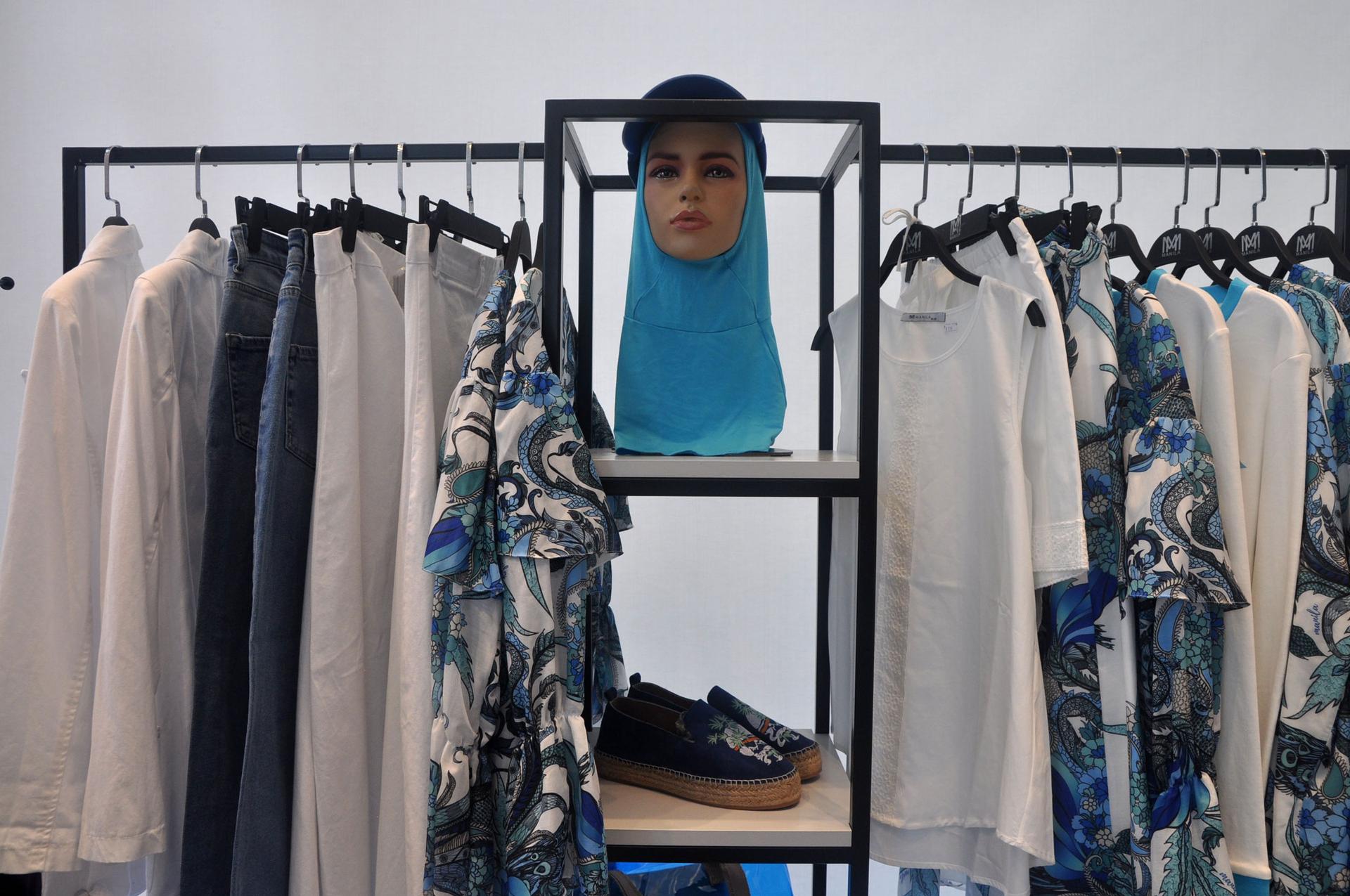
Imen Bousnina, a Vienna-based fashion designer who started her own modest label in 2019, said these brands are particularly popular among diaspora communities in Europe and the US.
“My generation in Austria, we’re not staying at home. We speak the language, we study at universities, we have more money to get more clothes. … We’re visible.”
“My generation in Austria, we’re not staying at home. We speak the language, we study at universities, we have more money to get more clothes,” Bousnina said in a WhatsApp call. “We’re visible.”
Bousnina’s online store specializes in sustainable modest fashion, drawing inspiration from her parents’ Tunisian heritage. The looks are classic, with good lines — earth tones, intentional asymmetry and dreamy tulle.
“You don’t call it by name anymore. You see a hijabi on the catwalk … she’s just a supermodel on a catwalk,” Bousnina said.
“I feel like it gives me a sign that this modest fashion is already getting a big part [in] the fashion industry.”
Translations from Turkish provided by Mesadet Sozmen and Aynur Türkseven.
